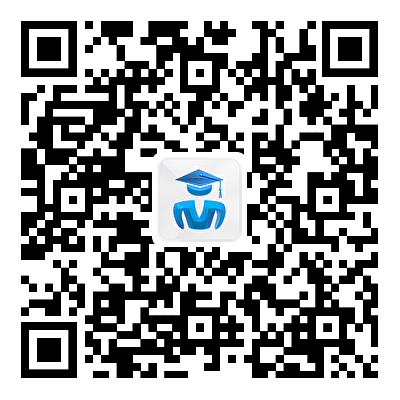Staff members of the United Nations Secretariat must fulfil the lateral move requirements to be eligible to apply for this vacancy. Staff members are requested to indicate all qualifying lateral moves in their Personal History Profile (PHP) and cover letter.
This position is funded for a finite period of at least one year, the appointment and renewal of the selected applicant is therefore subject to the availability of the post or funds, budgetary approval or extension of the mandate.
The United Nations Secretariat is committed to achieving 50/50 gender balance in its staff. Female candidates are strongly encouraged to apply for this position.
Staff members are subject to the authority of the Secretary-General and to assignment by him or her. In this context, all staff are expected to move periodically to new functions in their careers in accordance with established rules and procedures.
This position is located in the Special Projects and Innovation Branch of the United Nations Office of Counter-Terrorism (UNOCT), In Budapest. The incumbent will report to the Chief of the Branch.
The focus of this post is to lead implementation of a new UNOCT/UNCCT-led technical assistance project entitled 'Building the Capacity of Member States to Prevent, Detect and Investigate Terrorist Offenses and Related Travel by Using Advance Passenger Information (API) and Passenger Name Record (PNR) Data', implemented with the Counter-Terrorism Committee Executive Directorate (CTED), the United Nations Office on Drugs and Crime (UNODC), and International Civil Aviation Organization (ICAO).
The project responds to requirements established by the Security Council which, on 24 September 2014, adopted resolution 2178 to address the acute and growing threat posed by Foreign Terrorist Fighters (FTFs). The resolution inter alia calls upon Member States to require airlines operating in their territories to provide API to the appropriate national authorities in order to detect the departure from their territories, or attempted entry into or transit through their territories, by means of civil aircraft, of individuals designated by the Committee established pursuant to resolution 1267 (1999) and 1989 (2011) (the Committee). On 21 December 2017, the Security Council adopted resolution 2396, which builds on resolution 2178 (2014) by creating new international obligations and other provisions to
strengthen border security and information sharing. This includes the use of API and PNR data to address returning and relocating FTFs and transnational terrorist groups.
The United Nations Office of Counter-Terrorism (UNOCT) was established by the General Assembly in June 2017. The Office has five main functions: (a) provide leadership on the General Assembly counter-terrorism mandates across the United Nations System; (b) enhance coordination and coherence across the 38 Global Counter-Terrorism Coordination Compact (former CTITF) Task Force entities to ensure the balanced implementation of the four pillars of the UN Global Counter-Terrorism Strategy; (c) strengthen the delivery of United Nations counter-terrorism capacity-building assistance to Member States; (d) improve visibility, advocacy and resource mobilization for United Nations counter-terrorism efforts; and (e) ensure that due priority is given to counter-terrorism across the United Nations System and that the important work on preventing violent extremism is firmly rooted in the Strategy.
Within delegated authority, the Senior Programme Officer will be responsible for the following duties as they relate to the implementation of the technical assistance project:
• Takes the lead to develop, implement and evaluate the UNOCT/SPIB project, etc.; directs subordinates in programme/project development, implementation, monitoring and assessment; directs review of relevant documents and reports; identifies priorities, problems and issues to be addressed and proposes corrective actions; liaises with relevant parties; identifies and initiates follow-up actions.
• Ensures implementation of gender mainstreaming guidelines by assessing the implications for men and women of any planned action, including legislation, policies or programmes, in all areas and at all levels.
• Directs research and programme evaluation and presents information gathered from diverse sources.
• Coordinates policy development as it relates to API/PNR; reviews the assessments of issues and trends, preparation of evaluations or research activities and studies,
• Undertakes survey initiatives on API/PNR; guides design of data collection instruments; reviews, analyzes and interprets responses, identifies problems/issues and prepares conclusions.
• Supervises preparation of various written outputs relating to API/PNR, e.g. background papers, analysis, substantial sections of reports and studies, inputs to publications, etc.
• Directs substantive support to consultative and other meetings, conferences, technical assistance engagements, capacity-building efforts etc., to include proposing agenda topics, identifying participants, preparation of documents and presentations, etc.
• Manages outreach activities relating to the project; designs and conducts training workshops, seminars, etc., makes presentations on assigned topics/activities.
• Leads field missions, including provision of guidance and technical assistance to external consultants, government officials and other parties and drafting mission summaries, etc.
• Coordinates activities related to budget and funding (programme/project preparation and submissions, progress reports, financial statements, etc.) and ensures preparation of related documents/reports (pledging, work programme, programme budget, etc.).
• Serves as an effective spokesperson and establishes collaboration and partnerships with key officials at all levels inside and outside the organization.
• Ensures effective utilization, supervision and development of staff; Guides, evaluates and mentors staff
• May perform other duties as required.
• Professionalism: Knowledge and understanding of theories, concepts and approaches relevant to API/PNR issues, including on the adoption, introduction and use of API/PNR by Member States. Knowledge of UN Security Council mandates relating to API/PNR and the relevant work of project partners. Ability to lead the drafting of complex and coherent project documents drawing on the expertise of a broad range of actors. Ability to identify key strategic issues, opportunities and risks. Ability to generate and communicate broad and compelling organizational direction. Ability to communicate clearly links between the Organization's strategy and the work unit's goals. Demonstrated ability to provide innovative technical leadership by performing and/or overseeing the planning, development, and management of operation. Demonstrated ability to negotiate and apply good judgment.Shows pride in work and in achievements; demonstrates professional competence and mastery of subject matter; is conscientious and efficient in meeting commitments, observing deadlines and achieving results; is motivated by professional rather than personal concerns; shows persistence when faced with difficult problems or challenges; remains calm in stressful situations.
• Planning & Organizing: Develops clear goals that are consistent with agreed strategies; identifies priority activities and assignments; adjusts priorities as required; allocates appropriate amount of time and resources for completing work; foresees risks and allows for contingencies when planning; monitors and adjusts plans and actions as necessary; uses time efficiently.
• Client Orientation: Considers all those to whom services are provided to be "clients" and seeks to see things from clients' point of view; establishes and maintains productive partnerships with clients by gaining their trust and respect; identifies clients' needs and matches them to appropriate solutions; monitors ongoing developments inside and outside the clients' environment to keep informed and anticipate problems; keeps clients informed of progress or setbacks in projects; meets timeline for delivery of products or services to client.
Managerial Competencies
• Building Trust: Provides an environment in which others can talk and act without fear of repercussion; manages in a deliberate and predictable way; operates with transparency; has no hidden agenda; places confidences in colleagues, staff members and clients; gives proper credit to theirs; follows through on agreed upon actions; treats sensitive or confidential information appropriately.
• Judgement/Decision-making: Identifies the key issues in a complex situation, and comes to the heart of the problem quickly; gathers relevant information before making a decision; considers positive and negative impacts of decisions prior to making them; takes decisions with an eye to the impact on others and on the Organization; proposes a course of action or makes a recommendation based on all available information; checks assumptions against facts; determines the actions proposed will satisfy the expressed and underlying needs for the decision; makes tough decisions when necessary.
Advanced university degree (Master’s degree or equivalent) in business administration, management, economics, political science, law or a related field. A first-level university degree in combination with additional two years of qualifying experience may be accepted in lieu of the advanced university degree.
A minimum of ten years of progressively responsible experience in project or programme management, administration or related area is required.
Experience managing teams is required.
Experience in implementing Advance Passenger Information (API) and Passenger Name Record (PNR) related initiatives is required.
Experience in inter-governmental engagement is required.
Experience working in the field of Counter-Terrorism is desirable.
Experience coordinating projects or programmes across multiple stakeholders is desirable.
Experience overseeing the establishment of a Passenger Information Unit is desirable.
English and French are the working languages of the UN Secretariat. For this post fluency in English (both oral and written) is required. Knowledge of another UN official language is an advantage.
Evaluation of qualified candidates may include an assessment exercise which may be followed by competency-based interview.
According to article 101, paragraph 3, of the Charter of the United Nations, the paramount consideration in the employment of the staff is the necessity of securing the highest standards of efficiency, competence, and integrity. Candidates will not be considered for employment with the United Nations if they have committed violations of international human rights law, violations of international humanitarian law, sexual exploitation, sexual abuse, or sexual harassment, or if there are reasonable grounds to believe that they have been involved in the commission of any of these acts. The term “sexual exploitation” means any actual or attempted abuse of a position of vulnerability, differential power, or trust, for sexual purposes, including, but not limited to, profiting monetarily, socially or politically from the sexual exploitation of another. The term “sexual abuse” means the actual or threatened physical intrusion of a sexual nature, whether by force or under unequal or coercive conditions. The term “sexual harassment” means any unwelcome conduct of a sexual nature that might reasonably be expected or be perceived to cause offence or humiliation, when such conduct interferes with work, is made a condition of employment or creates an intimidating, hostile or offensive work environment, and when the gravity of the conduct warrants the termination of the perpetrator’s working relationship. Candidates who have committed crimes other than minor traffic offences may not be considered for employment.
Due regard will be paid to the importance of recruiting the staff on as wide a geographical basis as possible. The United Nations places no restrictions on the eligibility of men and women to participate in any capacity and under conditions of equality in its principal and subsidiary organs. The United Nations Secretariat is a non-smoking environment.
Applicants are urged to follow carefully all instructions available in the online recruitment platform, inspira. For more detailed guidance, applicants may refer to the Manual for the Applicant, which can be accessed by clicking on “Manuals” hyper-link on the upper right side of the inspira account-holder homepage.
The evaluation of applicants will be conducted on the basis of the information submitted in the application according to the evaluation criteria of the job opening and the applicable internal legislations of the United Nations including the Charter of the United Nations, resolutions of the General Assembly, the Staff Regulations and Rules, administrative issuances and guidelines. Applicants must provide complete and accurate information pertaining to their personal profile and qualifications according to the instructions provided in inspira to be considered for the current job opening. No amendment, addition, deletion, revision or modification shall be made to applications that have been submitted. Candidates under serious consideration for selection will be subject to reference checks to verify the information provided in the application.
Job openings advertised on the Careers Portal will be removed at 11:59 p.m. (New York time) on the deadline date.
APP-IOS

扫码下载留信网®APP(IOS)
小程序

留信网®小程序入口